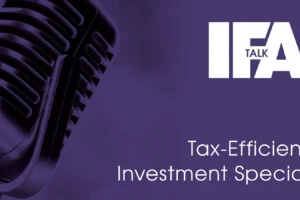Writing exclusively for IFA Magazine, iPensions’ Group Managing Director, Craig Cheyne, explains why he sees huge potential in the market for both providers and advisers alike, as long as they address Consumer Duty and technology
It was the very welcome reform centrepiece of Chancellor Jeremy Hunt’s recent Autumn Statement – the launch of the consultation on the Lifetime Provider model for the pensions market. Or to use its more popular name ‘pot for life’.
The reform addresses the growing issue of deferred pensions which have ballooned in number since the successful launch of workplace auto-enrolment. The side effect of the success of auto-enrolment is that as people move jobs they move pension provider.
Given that the average person will have between nine and 12 jobs in their working life that adds up to a lot of pension pots. The Government estimates there will be around 27 million deferred pensions by 2035 and that administration costs on deferred funds would hit more than £300 million a year by 2030.
Delivering the Lifetime Provider model will inevitably take time but in the meantime some of the factors driving the need for reform are also driving strong growth in the SIPP market and will continue to shape developments across the sector for the foreseeable future.
SIPP market expansion
By 2023 more than £205 billion in assets was held in SIPPs with over 1.7 million people investing in SIPPs. FCA figures for 2022 show the number of SIPPs opened was the highest for more than four years as the market continues to see exponential growth.
Consolidation of pension pots – the pot for life in practice – is one of the key drivers as retirement savers look to cut down on administration time and costs. The Government estimate of £300 million a year in administration costs for deferred pensions is concentrating minds among retirement savers who also benefit from flexibility and wider investment choice in SIPPs.
Our research with advisers found that 55% of them believe consolidation will be the biggest factor in the ongoing expansion of the SIPP market. Nearly half (46%) we interviewed expect a rise in clients consolidating pension funds through SIPPs in the next two years.
Almost all (91%) believe their SIPP business will grow over the next two years with more than a quarter (26%) forecasting an increase of 20% or more in their SIPP business by 2025.
But consolidation on its own is not the only factor in the expansion of the SIPP market. There is more life in the market than the ‘pot for life’.
Consumer Duty is a reality
The introduction of Consumer Duty rules in July 2023 is a major opportunity for the SIPP market. It empowers all market participants to take an holistic approach to ensuring customers receive good outcomes from their retirement savings.
Providers, advisers, and trustees are moving on from treating customers fairly to treating customers well and being able to prove it.
That will reward the SIPP providers and advisers who focus on service excellence and all the signs are that the market is stepping up to the challenge. SIPP providers can provide evidence of best practice in terms of client outcomes. However providers need to fully embrace technology to ensure they are delivering for clients.
Technology is transforming the market
Digital solutions are vital to ensuring clients remain engaged with their pensions and are an important tool in helping to minimise cancellations and the reduction of pension contributions. iPensions Group is one of a number of providers which enable customers to sign up easily and consolidate their funds into one.
Online solutions deliver more than just easy sign-up. They enable customers to choose their preferred investment funds and monitor their performance online with complete transparency on fees and charges. Investors have access to risk ratings and asset allocation information on their chosen funds. At iPensions we provide retirement savers with a contributions feature helping them and their employers to maintain pension savings
And new markets are opening up
The focus of the pension industry should however always be encouraging and enabling more people to save and to save more and the SIPP market is particularly addressing the self-employed and contractor market.
Self-employed workers have increased pension contributions by around £300 million with more self-employed people saving for retirement, according to the most recent Government data.
However just 340,000 self-employed people are contributing to pensions out of around 4.24 million self-employed in the UK. SIPPs are particularly suited to the self-employed and contractors or those who have become self-employed recently as they can combine all their existing pensions into one.
It is a huge potential market to address for SIPP providers and advisers. But it is a market the sector is particularly qualified to address.
Consolidation is the major factor driving change in the pension market as a whole as the industry focuses on the development of the ‘pot for life’. The reality is that SIPPs already offer a pot for life and as long as providers address Consumer Duty and technology the sector is ideally placed to further ramp up its rapid expansion.















